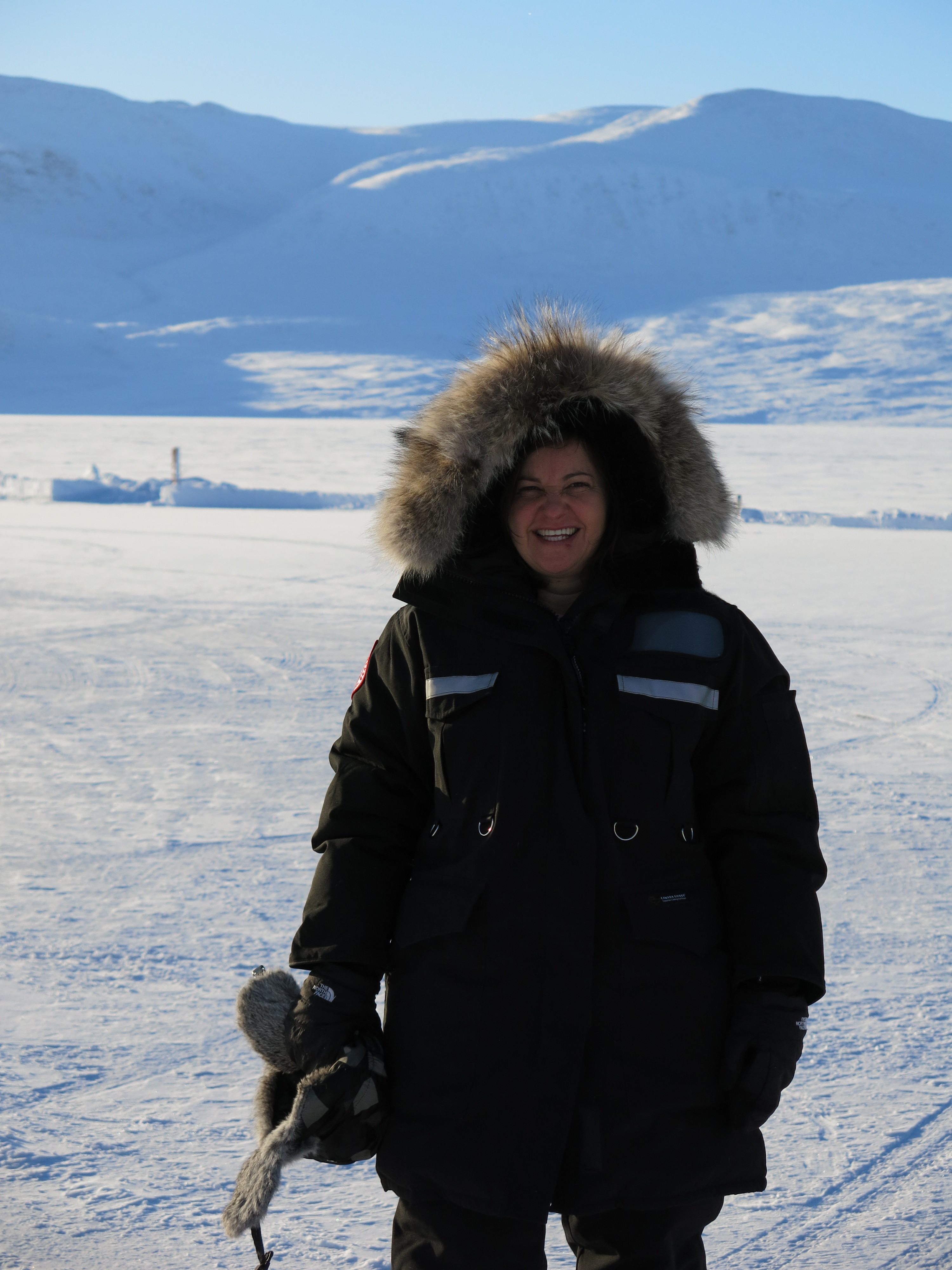
Priscilla Ferrazzi, assistant professor in the Department of Occupational Therapy wants to understand the access to justice barriers that currently face Indigenous peoples with disabilities in the Canadian Arctic. (Photo supplied)
The inaugural winner of a new University of Alberta fund for social justice and disabilities research hopes the new award will make a difference for Inuit with disabilities and access to justice in the Canadian Arctic territory of Nunavut.
"Access to justice is about accessing such things as legal information, lawyers, court buildings, and interpretation services," explains Priscilla Ferrazzi, an assistant professor in the University of Alberta's Faculty of Rehabilitation Medicine as well as a long-time lawyer who has worked in Nunavut courts.
"It is considered the cornerstone of inclusion, equality and social justice in Canada, and in recent years, access to justice has been in the forefront of the Canadian legal landscape. Barriers to this access are known to disproportionately affect Indigenous peoples and people with disabilities," says Ferrazzi.
Ferrazzi was named the first winner of the Stephanie Chipeur Accessibility Research Fund. The new award honours Stephanie Chipeur, a young doctoral student at McGill University's Faculty of Law, whose experiences following a spinal cord injury have inspired the creation of this fund. The new fund aims to help University of Alberta research that explores accessibility, visitability or universal design affecting the lives of people with disabilities across Canada.
Ferrazzi's research, which benefits from her years of experience as a criminal prosecutor in the south and in communities throughout Nunavut, involves a comprehensive, vital review to better understand the barriers affecting access to justice for Indigenous peoples with disabilities in the Canadian Arctic.
Liz Dennett, a public service librarian at the John W. Scott Health Sciences Library and the dedicated librarian for the University of Alberta's Faculty of Rehabilitation Medicine, is a co-applicant on the project. Others assisting with the project include University of Alberta law librarians Grant Kayler and Katie Cuyler, Queen's University Accessibility Services librarian Michele Chittenden, and research assistants Gloria Song and Emma Camicioli.

Named in honour of a young McGill doctoral student
(pictured above), the Stephanie Chipeur Accessibility
Research Fund will provide a one-time research grant
to a faculty member to develop a research project that
focuses on social justice as it relates to accessibility,
visitability or universal design. (Photo supplied)
The aim of the work, says Ferrazzi, is to use the results to generate consensus on a direction for a larger related research initiative among justice, health and disability organizations in Nunavut.
"In the geographically remote and mainly Inuit communities of Nunavut, people with disabilities face physical, cognitive and communication barriers that impede inclusion in the justice system," says Ferrazzi. "The Stephanie Chipeur Research Accessibility Fund has given us a head start toward understanding barriers to access to justice affecting people with disabilities in Nunavut."
The study is expected to identify these barriers through an extensive review of literature, policies, legislation and court cases in the territory. The results will be shared and discussed with key stakeholders including the Law Society of Nunavut, the Government of Nunavut and the Nunavummi Disabilities Makinnasuaqtiit Society.
While more than one in 13 people over age 15 in the Canadian Arctic territory of Nunavut live with a disability, little is known about how this group encounters barriers that limit access to justice. Barriers to this access are known to disproportionately affect persons with disabilities as well as other marginalized groups.
Aboriginal adults-who have been found to be more than twice as likely to be living with a disability than non-Aboriginal adult Canadians-are particularly vulnerable. Access to justice can also be negatively affected by geography, such as remoteness and a rugged, often-icy landscape, along with other factors such as cultural differences and socio-economic status.
Nunavut is Canada's geographically largest, most northerly and youngest territory, established in 1999. Inuit culture remains central to the territory, and 85 per cent of the population is Inuit. More than half use Inuktitut as their dominant language at home.
The territory occupies nearly two million square kilometres with a sparse population of just over 37,000. Justice in Nunavut is administered by the Nunavut Court of Justice including an established court in the capital of Iqaluit and a "fly-in" court which services the territory's many geographically scattered communities.
"These and other factors are likely to make culture, remoteness and resource considerations critically important to access to justice in the territory," says Ferrazzi. "But we need to know how they are important."
______________________________________________________________________________________________________________________
Priscilla Ferrazzi, PhD is an assistant professor in the University of Alberta's Faculty of Rehabilitation Medicine and a long-time lawyer whose unique and interdisciplinary research program bridges law and rehabilitation science.
Ferrazzi's current research aims to understand this law-rehabilitation nexus in the context of Canada's Arctic and the Inuit people who live there. Her projects involve collaborations with key Arctic stakeholders, including the Government of Nunavut, the Law Society of Nunavut, the Arviat Wellness Centre and others.
Ferrazzi joined the University of Alberta's Department of Occupational Therapy in 2016 after many years as a criminal prosecutor, including several years working occasionally in courts across the far north. Her doctoral work in rehabilitation science at Queen's University studied court responses to people with mental illness in the Arctic.
Her current SSHRC and Law Foundation of Ontario-funded project explores Inuit ideas of what rehabilitation means in the context of young men who break the law. The knowledge generated will help inform a future rehabilitation-oriented Wellness Court for Nunavut that addresses underlying causes of crime while being responsive to the history, culture and demographics of the territory.